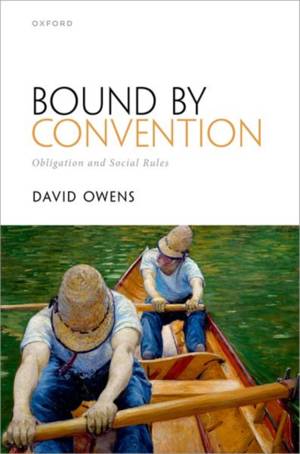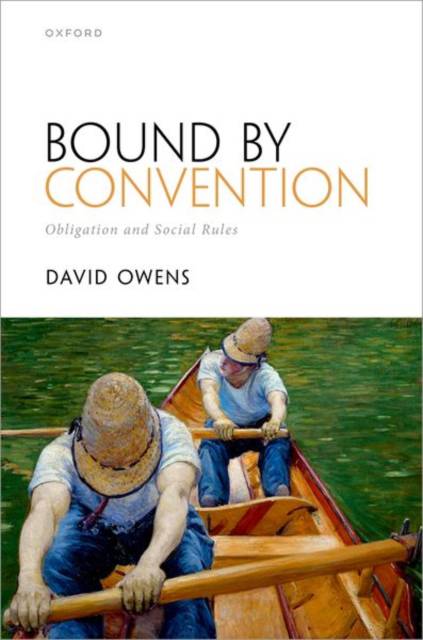
Bedankt voor het vertrouwen het afgelopen jaar! Om jou te bedanken bieden we GRATIS verzending (in België) aan op alles gedurende de hele maand januari.
- Afhalen na 1 uur in een winkel met voorraad
- In januari gratis thuislevering in België
- Ruim aanbod met 7 miljoen producten
Bedankt voor het vertrouwen het afgelopen jaar! Om jou te bedanken bieden we GRATIS verzending (in België) aan op alles gedurende de hele maand januari.
- Afhalen na 1 uur in een winkel met voorraad
- In januari gratis thuislevering in België
- Ruim aanbod met 7 miljoen producten
Zoeken
€ 161,45
+ 322 punten
Omschrijving
How should we assess the social structures that govern human conduct and settle whether we are bound by their rules? One approach is to ask whether those social arrangements (e.g. our family structures) reflect pre-conventional facts about our nature. If they do, compliance will serve our interests because these rules are not just conventions. Another approach is to ask whether following a convention has desirable consequences. For example, the rule which makes the dollar bill legal tender is a convention and the great usefulness of having a medium of exchange ensures that we should follow that convention by accepting paper money in return for things of real value. This work argues that being bound by a convention can also be valuable for its own sake. People need meaning in their lives and conventions infuse acts and attitudes with normative significance, rendering them right or wrong, appropriate or inappropriate, required or forbidden. Such rules bind us not just in virtue of
their usefulness but also because their absence would impoverish our social world. Appreciating this point is essential to a proper understanding of our cultures of neighbourliness and hospitality, family structures, systems of property rights, conventions around speech, the norms governing how we deport ourselves in public, and even the rules of a game.
their usefulness but also because their absence would impoverish our social world. Appreciating this point is essential to a proper understanding of our cultures of neighbourliness and hospitality, family structures, systems of property rights, conventions around speech, the norms governing how we deport ourselves in public, and even the rules of a game.
Specificaties
Betrokkenen
- Auteur(s):
- Uitgeverij:
Inhoud
- Aantal bladzijden:
- 278
- Taal:
- Engels
Eigenschappen
- Productcode (EAN):
- 9780192896124
- Verschijningsdatum:
- 1/12/2022
- Uitvoering:
- Hardcover
- Formaat:
- Genaaid
- Afmetingen:
- 163 mm x 237 mm
- Gewicht:
- 566 g

Alleen bij Standaard Boekhandel
+ 322 punten op je klantenkaart van Standaard Boekhandel
Beoordelingen
We publiceren alleen reviews die voldoen aan de voorwaarden voor reviews. Bekijk onze voorwaarden voor reviews.









